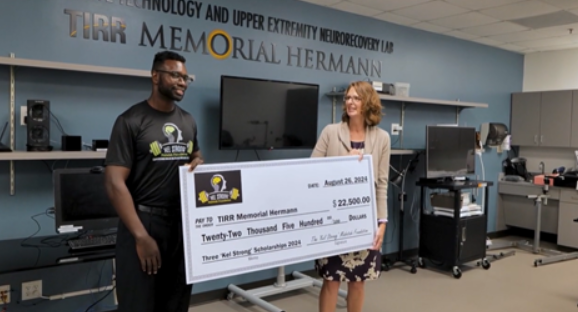
When life takes unexpected, tragic turns, some individuals find resilience and purpose through the pain. Kel Mabatah is one such individual, who has not only survived a personal tragedy but turned his experience into a foundation to help others.
From Professional Athlete to Brain Injury Survivor
Mabatah’s life began with the dream of becoming a professional tennis player. Growing up in Texas, he excelled in the sport, eventually earning a scholarship to Texas Christian University (TCU). After multiple elbow surgeries, however, Mabatah had to retire from tennis and shift his focus to managing his family’s business in Nigeria.
“I worked in Nigeria for about three or four years, going back and forth. Then, on December 3, 2014, something happened that changed everything,” Mabatah recalls.
In December 2014, Mabatah faced a traumatic experience that would alter his life forever. While he was home one evening, armed assailants invaded his property, hitting him in the head with the butt of a rifle, stabbing him in the stomach and leaving him for dead
“That night, after I finished some work, I went back to my compound to call my mom. A few minutes after eating, I heard loud banging at the door. I initially thought it was my security checking in, but the banging was intense. I locked my front door, but they broke through, and four or five men came in, all armed,” Mabatah tells BlackDoctor.org. “One of them pointed a gun at me, and another grabbed me, saying, ‘You’re going to die tonight.’ They wanted money, so I offered to take them to the office to get some. But he just told me to shut up and get on the ground.”
By the time he was found by police, Mabatah had blacked out and was in critical condition. He was rushed to a local hospital in Agbor and transferred the next morning to a medical center in Asaba, 20 minutes away.
“They took me to the hospital, and the next thing I remember was waking up three weeks later,” Mabatah tells BlackDoctor.org.
As a result of his attack, Mabatah endured four brain surgeries to remove blood clots and manage swelling.
“The first one saved my life by removing blood clots from my brain, but my family was told there was no guarantee I’d make it. Once I was stable, my dad came to get me, and we returned to Houston, where I had two more surgeries. My fourth surgery was in July 2015, when they replaced part of my skull with a titanium plate. Since then, my recovery has been ongoing,” Mabatah adds.
Despite permanent paralysis on his right side, he found strength through rehabilitation at TIRR Memorial Hermann and even discovered bodybuilding, recommended by his therapist, as a new competitive outlet.
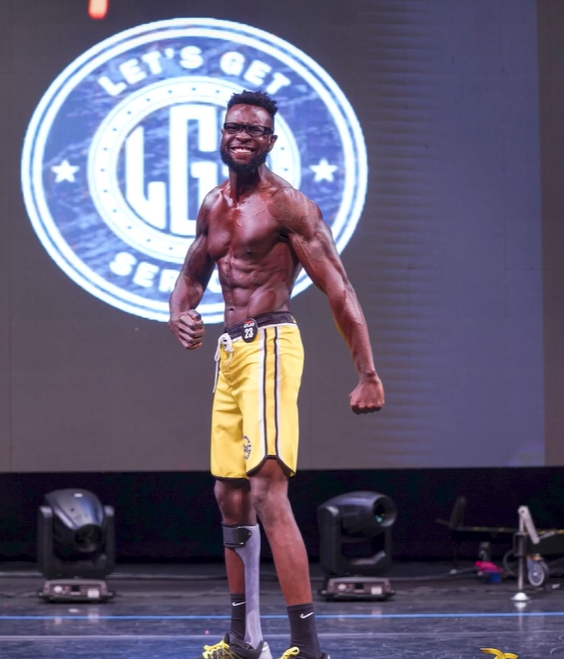
Through bodybuilding, Mabatah reconnected with his love of competition and found a way to inspire others. His determination to overcome physical and emotional hurdles led him to establish the ‘Kel Strong’ Mabatah Foundation, aiming to help other brain injury survivors access the long-term support they need.
“Rehabilitation was intense—I had to relearn how to walk, talk, and use my right side, which is still partially paralyzed. My recovery journey was challenging, but it inspired me to start my foundation to help others facing similar struggles, especially those with limited access to therapy and resources,” Mabatah shares. “I didn’t think I could be competitive again, but in September 2020, I entered my first bodybuilding competition and came in second. Now, I compete professionally as a bodybuilder and use it to show others what’s possible despite disabilities.”
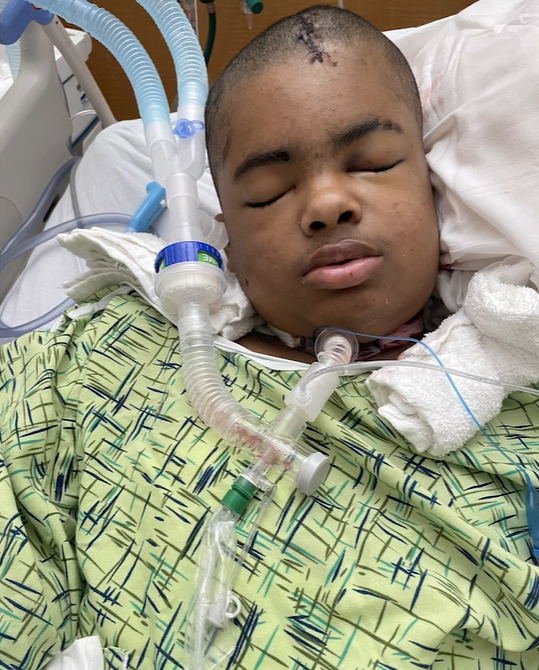
A Mother’s Devotion to Her Son’s Recovery
Through the foundation, Mabatah connected with Alfredia Melvin, whose 17-year-old son, Dontel, suffered multiple brain injuries in a severe car accident in August 2022. Dontel, an aspiring basketball player, was rushed into emergency surgery after his friend’s car hydroplaned and crashed. By the time Melvin arrived at the hospital, her son had coded twice.
Dontel remains completely dependent, yet he’s made heartwarming strides, including moments of smiling and engaging with his environment.
“They didn’t think he’d make it overnight, but on the third day, he showed signs of brain activity. To this day, he’s still fighting and recovering,” Melvin shares.
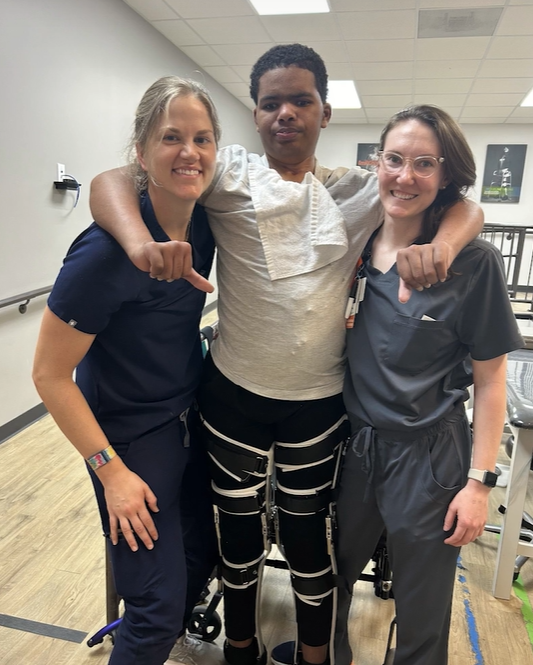
Facing the limitations of insurance and the demands of caregiving, Melvin sought additional resources to ensure Dontel received the care he needed. Her search led her to the ‘Kel Strong’ Mabatah Foundation, where she found not only financial support but also emotional guidance from someone who had faced similar challenges.
“I first saw Kel’s story on a wall at the rehab facility and later met him in person. We connected on social media, and when his foundation was ready, he reached out. Getting a ‘yes’ from his foundation was a huge blessing after being told ‘no’ so many times by insurance. The foundation’s scholarship will allow Dontel to receive more therapy and necessary equipment, which has been so challenging to access. I admire Kel’s strength in telling his story and giving back—his work is inspiring, and it gives me hope,” Melvin adds.
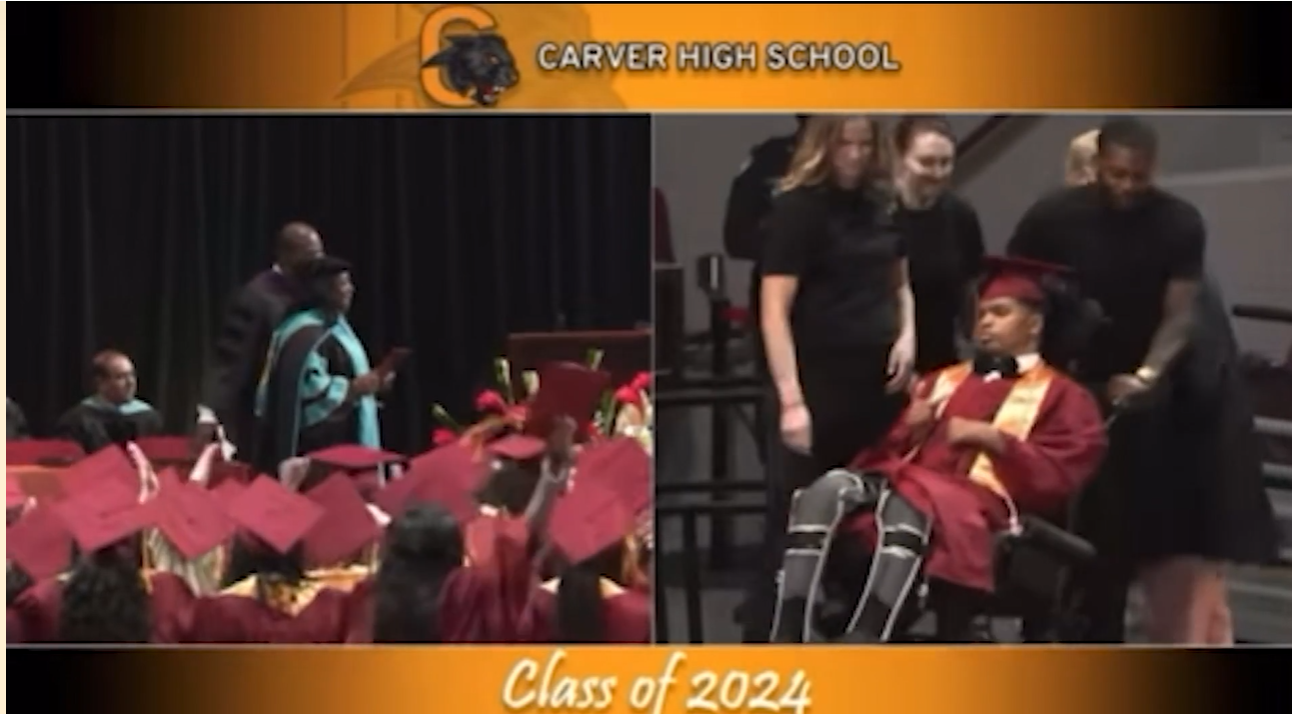
This year, the ‘Kel Strong’ Mabatah Foundation has contributed $22,000 in therapy scholarships to support individuals with brain injuries and their families, bringing its total donations to $70,000 since the foundation’s inception. The foundation also provides emotional support to survivors, recognizing that financial aid alone is not enough.
“My long-term goal is to turn this into a large global organization, helping people not just in Houston but all over. I receive emails from people in California, China, and Pakistan—people who hear about our work and reach out, asking how they can access the assistance we provide,” Mabatah notes.
He understands that many brain injury survivors feel isolated in their journey, and he makes a personal effort to stay connected with foundation recipients. He offers a unique form of encouragement, drawing from his own experience.
“Unless you’ve experienced a brain injury yourself, you don’t really know what it’s like. I was on TV recently here in Houston, and afterward, I received an email from someone who had a stroke. He said he was ready to give up, but he saw my story and reached out for help because he didn’t want to give up after hearing about my journey,” Mabatah shares.
Encouragement for Those on the Road to Recovery
Mabatah’s message to brain injury survivors is clear: “Never give up.”
“For anyone going through this—and I hope no one ever has to—it’s crucial never to give up and always keep hope alive. You have to work hard at this every day and be consistent. Believe that you’re going to get better. Most importantly, don’t listen to anyone who tells you what you can’t do. They’re not God, and they haven’t been through what you’ve been through. So don’t let anyone tell you what’s possible for you,” he advises. “I’ve even had doctors and therapists tell me that I wouldn’t improve after a certain amount of time, which was so frustrating. But I’m proof that with hard work, consistency, faith, and the right support, you can keep getting better—even ten years after your injury. I’ve proven that. Don’t let anyone set limits on your recovery.”
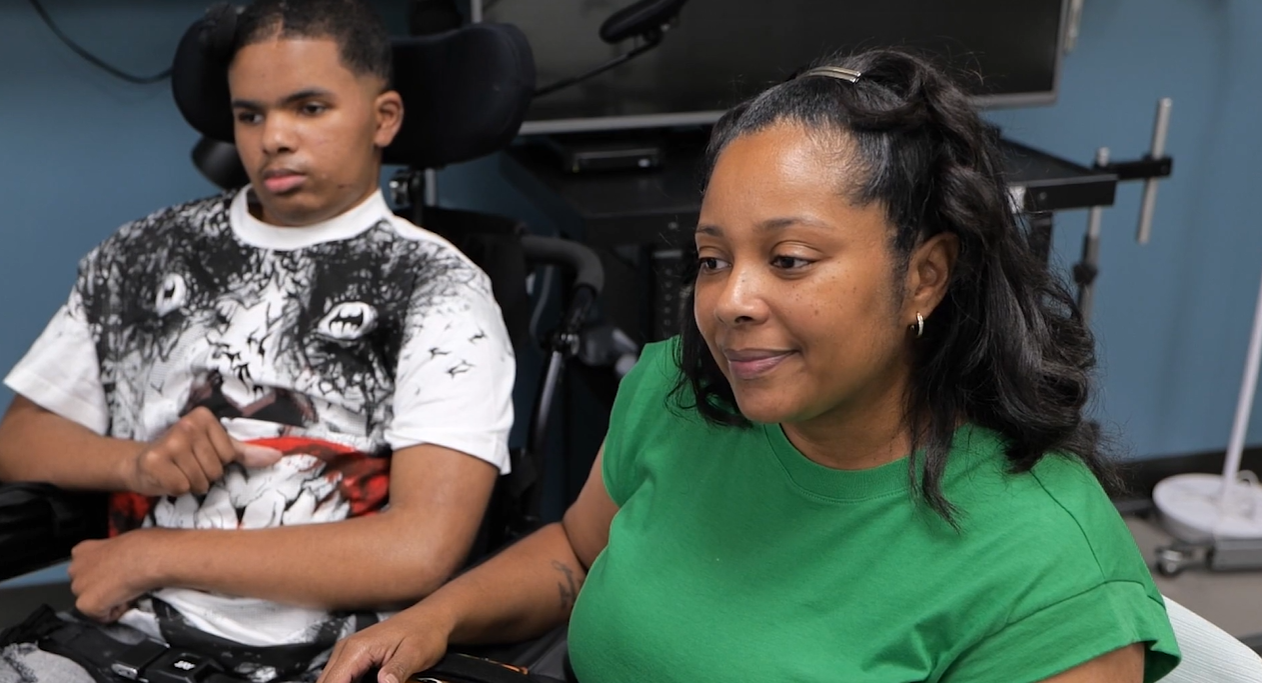
Melvin shares similar advice from the perspective of a caregiver. “When people ask me about my son’s prognosis, I tell them it’s simply that he’s alive and going to keep living. I don’t allow doctors to set time limits for his recovery—they’re there to guide me, not define his future,” she shares.
For Melvin, giving herself grace and staying focused on her son’s small milestones have also been vital. “As a caregiver, I also encourage others to give themselves grace. It took me a year or two to start giving myself grace and to trust that we’d make it through this journey. I’m also his voice, so we work hard, but I also know when he needs a break, and we take it. Caregivers must care for themselves too,” she adds.
How to Support the ‘Kel Strong’ Mabatah Foundation
For those inspired by Mabatah and Melvin’s story, the ‘Kel Strong’ Mabatah Foundation offers an opportunity to help make a difference. Donations to the foundation directly support the physical and emotional needs of brain injury survivors, including funding for therapy, adaptive equipment, and emotional support programs. Mabatah encourages people to follow the foundation’s journey on Instagram and through the website at ‘Kel Strong’ Foundation, where supporters can learn more about the impact of their contribution.








